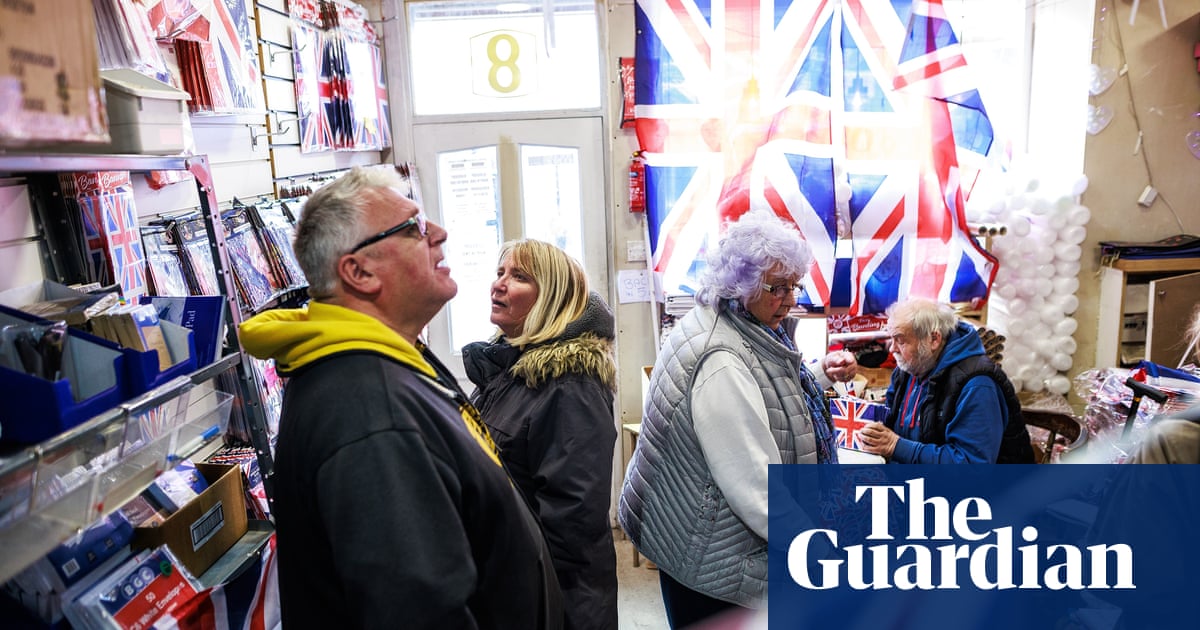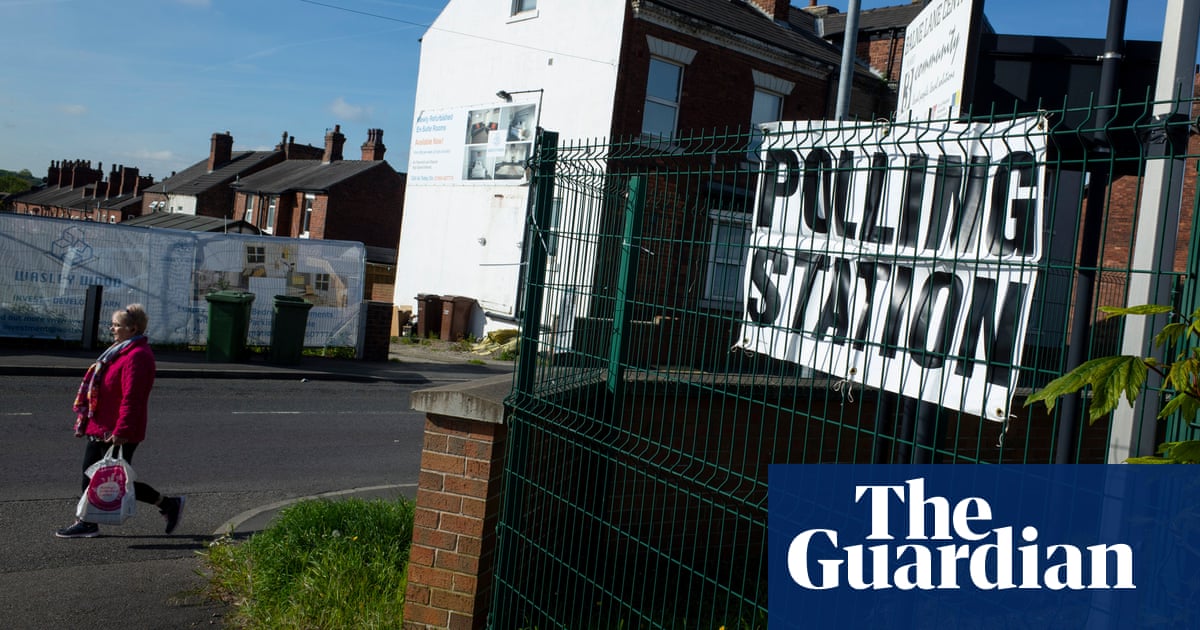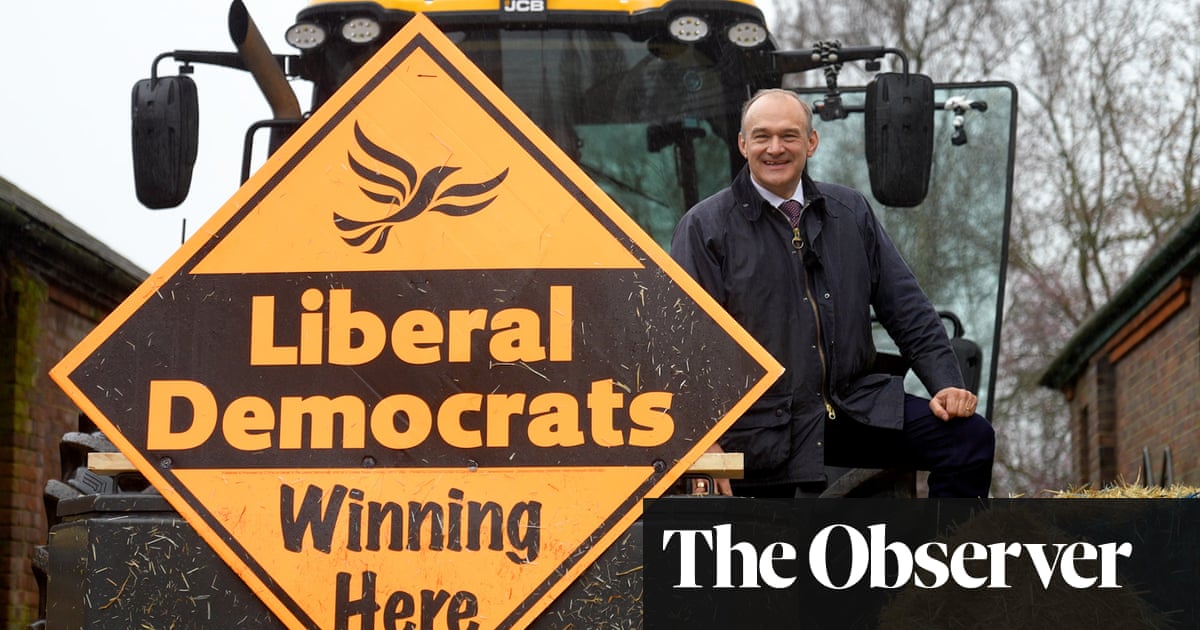
Sean Winterbottom does not like politics. But like all people who do not like politics, once he starts talking about it, he has a lot to say. “Last general election I voted Conservative, but I don’t know for this one. They all just spin you whatever they want to spin you,” he said, leaning over the counter in the plumber’s merchant on the high street in Glossop where he works.
“I know it’s never going to happen but the parties should work together, contribute in areas that they’re good at and just work for the benefit of the country. There’s too much mudslinging and point-scoring, and they’re all as bad as each other. I don’t like drama.”
He was a fan of Boris Johnson, did not like Liz Truss, and “I don’t know much about the guy that’s in now”. He was uninspired: whether he would vote at all on Thursday, he was not sure.
The local elections are not a huge talking point in Glossop, a town in the borough council of High Peak, which reliably swings like a pendulum from Labour to the Conservatives and back again.
Glossop is at the start of the Snake Pass, the winding road to Sheffield. It is a medium-sized town with a thriving centre of locally owned shops and cafes, which some say is ruined by the perpetual traffic jam going in and out of it.
High Peak, as its name suggests, encompasses the highest points of the Peak District in Derbyshire. Sandwiched between Greater Manchester and Sheffield, it takes in the dramatic gritstone edges of the Dark Peak and the limestone plateau of the White Peak, as well as various caves (including Castleton’s Devil’s Arse). Kinder Scout – site of the mass trespass of 1932 that led to the formation of the first national park – is probably its most famous landmark, while the spa town of Buxton attracts visitors from all over the world keen to drink and bathe in the healing waters.
Many residents are middle-class professionals who have moved out of Manchester or Sheffield for a bit of country life and commute into those cities a few days a week on various notoriously unreliable railway lines. They tend to be the Labour voters, while the Tories have a more rural base with longer-standing residents. Property prices are higher than average for Derbyshire, with high street estate agent windows showing ordinary two-bedroomed terraced homes comfortably fetching £200,000.
The council is currently run by a Labour minority, after the party lost a majority in April last year when the Tories snatched the Cote Heath ward in a byelection triggered by the death of the Labour councillor Keith Savage. The situation is normal here: since it was established in 1975, the knife-edge council has spent nearly as many years under no overall control as it has with a party in majority charge.
“I think a lot of people do feel undecided,” said the Derbyshire Labour councillor and former MP Ruth George, who has spent many hours on doorsteps in the run-up to these elections on 4 May.
She said lots of people were basing their decisions on local issues but they were not always upfront about which way they would vote. “Because politics has become quite polarised, then people are probably a bit more circumspect about giving their views,” she said.
On the day of the Guardian’s visit it was national politics that loomed large over Glossop, where the only people who seemed sure of their vote were those who knew a councillor personally.
One of those was Nigel Sowerbutt, who for 45 years has been a greengrocer on the high street, where many years ago his local Labour candidate had been a Saturday boy. How would he vote? “Not Tory. Have you seen the state of the country? People are struggling, we’ve got food banks, I could go on and on,” he said.
Younger people felt conflicted though, feeling that Labour had strayed too far from its values in order to attract older generations.
“I’ve always voted Labour but Labour is not really Labour any more,” said 24-year-old Beth Lawler, who works at a local school. “It’s now more of a middle-right party, which doesn’t really appeal to me because I’m a socialist.”
The cost of living crisis was the main issue on her mind. “I’m living with my mum and we have four wages in the house and we’re still struggling,” she said. She was resigned to voting Labour simply because she felt there was no alternative in an area where no other party had a significant presence.
Many people said they would see how they felt on the day. “I don’t think it’s possible to pick the right candidate,” said Sue Menzies, 68, a phlebotomist in a private clinic, who was keen that politicians reflect the makeup of the area they represent. “They need commoners, someone who’s lived the life and walked the shoes,” she said.
She did not pay too much attention to election leaflets – “they can write anything” – but she had her own unconventional method of deciding. “I go by who looks nice. You can judge a character by a picture. Or I can, anyway.”












